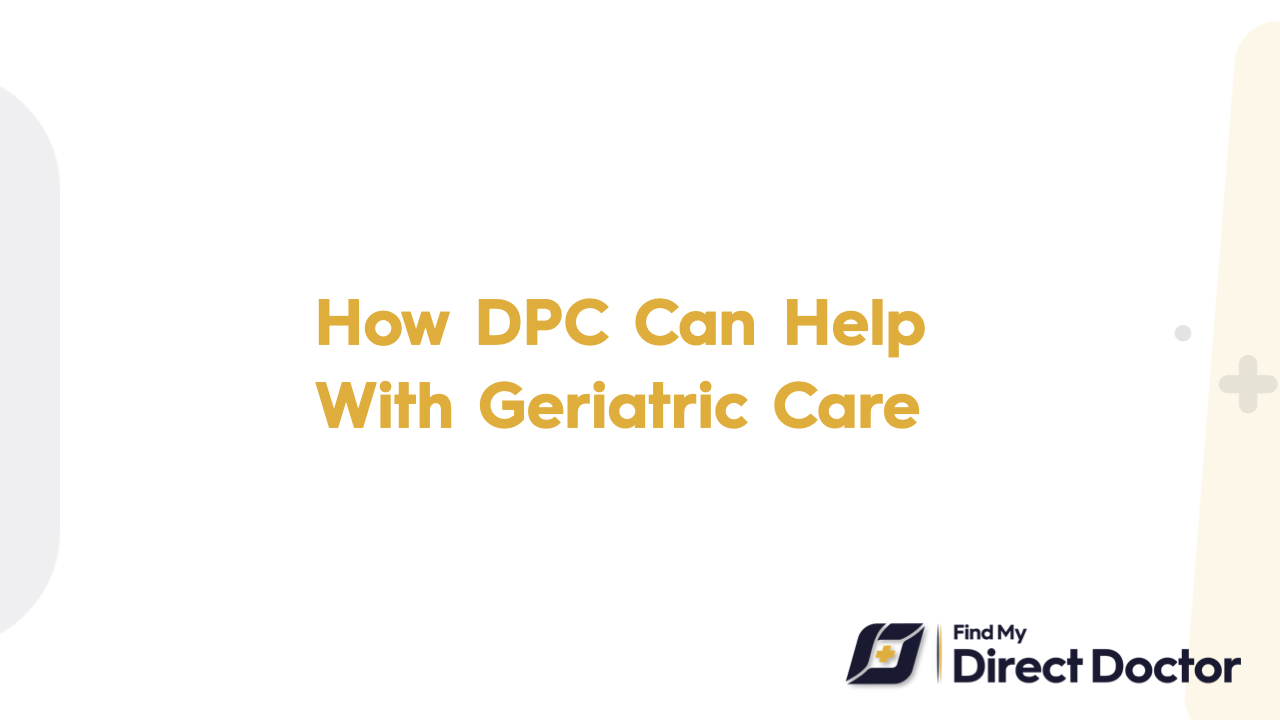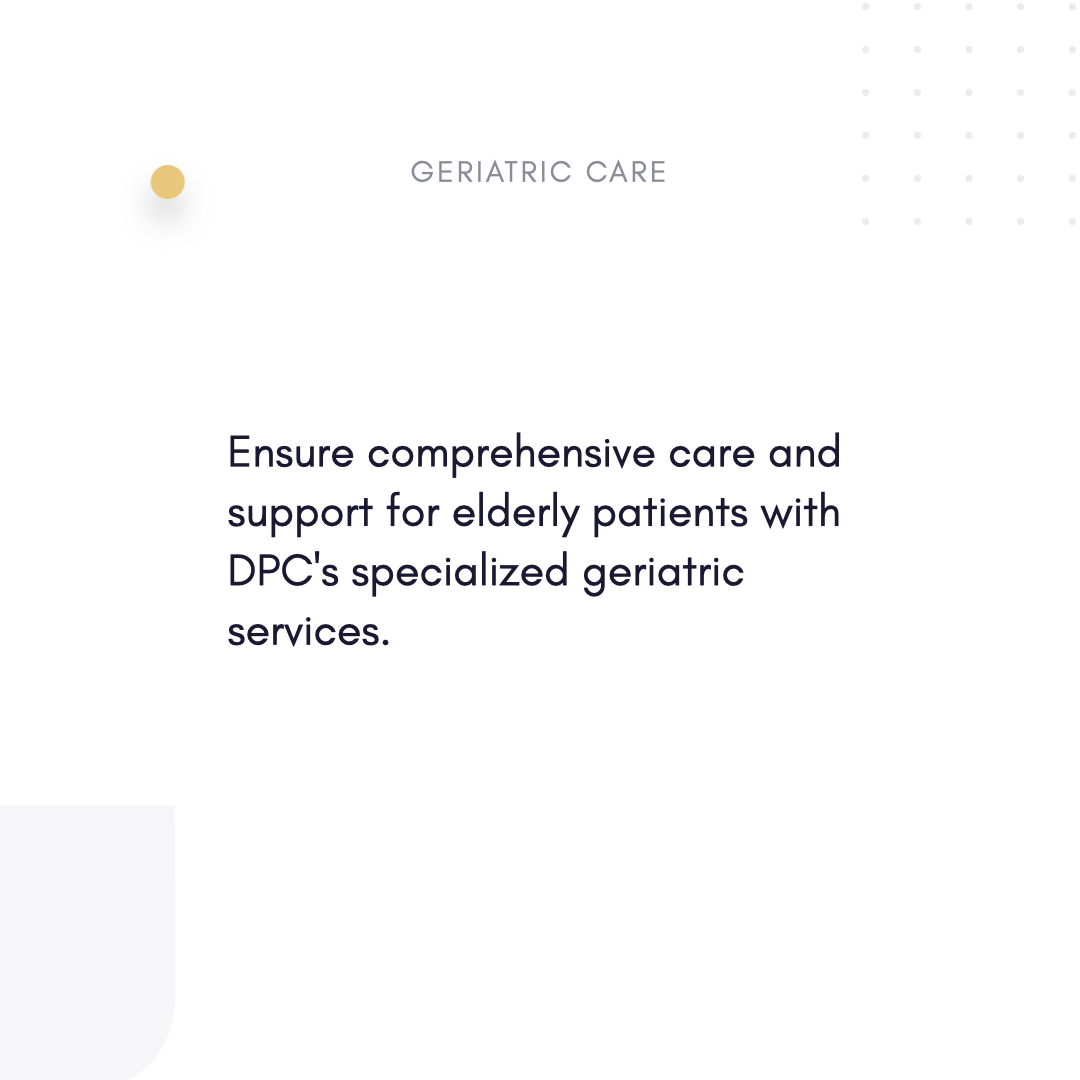Geriatric Care and Direct Primary Care (DPC): Compassionate, Comprehensive Support for Aging Well
Getting older is hard because of long-term illnesses, taking too many medicines, and having trouble moving around. You need more than just regular checkups to fix these issues. DPC gives seniors ongoing, personalized care that changes as their needs change. This helps them keep their dignity and quality of life as they get older.

Understanding Geriatric Care in DPC: Complete Health for Seniors
DPC's geriatric care is mostly about helping people with long-term illnesses like diabetes, high blood pressure, and heart failure.
- Cognitive health: Looking for early signs of dementia and keeping an eye on depression.
- Checking balance and safety in the home to stop falls.
- Living wills and POLST forms are part of advance care planning.
Key components of DPC geriatric care:
- Home visits: For people who can't leave their homes.
- Help for caregivers: places to learn and take a break.
- Stop dangerous polypharmacy by reviewing medications.
- Putting together palliative and hospice care at the end of life.
How DPC Changes the Way We Care for Seniors
Instead of broken senior care, Direct Primary Care (DPC) puts the patient first:
1. Taking care of your health before it gets worse
- CGA stands for "comprehensive geriatric assessments." Once a year, check on your physical, mental, and social needs.
- Vaccinations, bone density scans, and cancer screenings are all ways to keep people from getting sick.
- Putting together chronic care: Do as few tests as possible and work with specialists.
2. More access and continuity
- Appointments the same day or the next day: Don't go to the emergency room if you have a UTI or are dehydrated.
- Telehealth all the time: You can talk about your worries without leaving your house.
- Family participation: Make sure that caregivers are included in care plans and decisions.
3. Care that is easy to understand and doesn't cost too much
- Prices that are easy to figure out: You can go as many times as you want and get help with care coordination for a set monthly fee.
- Less time in the hospital: Early intervention reduces readmissions by 30 to 50%.
- No extra fees: EKGs and joint injections are just two examples of the services that are included.
How it affects real life
- Case 1: Mary, 82, has diabetes and falls a lot. Mary's DPC team changed her medications, ordered physical therapy, and put in grab bars, which cut down on falls by 70%.
- Case 2: John, who is 78 years old, has early Alzheimer's disease. John's DPC provider got his daughter involved in his care, started him on memantine, and set up adult day care for him.
Common Questions About DPC's Geriatric Care
- Q: Does DPC handle Medicare?
- A: DPC is not part of Medicare, but many older people use both to get full coverage.
- Q: Can DPC help with memory loss?
- A: Yes. Regular cognitive tests, help for caregivers, and keeping track of medications.
- Q: Are home visits more expensive?
- A: No. If patients can't leave the house, DPC members can go to their homes.
- Q: What if something goes wrong?
- A: DPC providers work with hospitals in the area and check on patients after they leave the emergency room.
Why DPC is the best option for caring for seniors
Lots of time for appointments: A visit that lasts 30 to 60 minutes can help with a lot of different things.
- Focus on prevention: finds problems early, which saves money on costly crises.
- Personalized advocacy: Makes sure that the care the patient gets is what they want and need.
Final Thoughts
In DPC, caring for older people isn't just about treating their illnesses. It's also about being kind and helpful to people who are older. DPC is a reliable partner for seniors and their families who knows their history, can guess what they need, and cares about their health. No rushed visits, no switching doctors—just steady, caring care that helps seniors do well.






